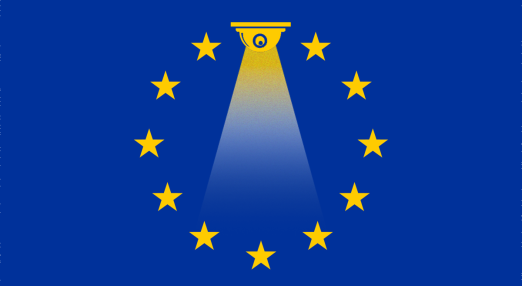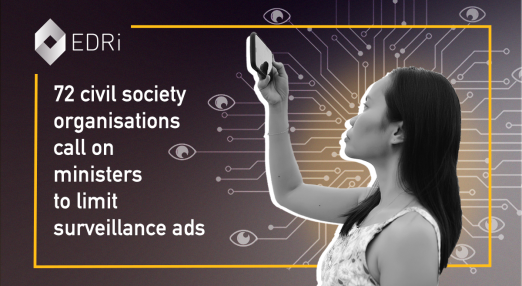Blogs
Filter by...
-

Civil society call and recommendations for concrete solutions to GDPR enforcement shortcomings
EDRi members call on the European Data Protection Board (EDPB), the European Commission, and all national data protection authorities (DPAs) to urgently address the structural and procedural enforcement issues that prevent the GDPR from fully reaching its potential.
Read more
-

Giropay knows what you bought last summer
A customer contacted noyb after seeing a detailed list of products she had ordered in an online pharmacy and a sex shop listed in her giropay account. Such data is specially protected under the GDPR and may not be processed without consent. noyb filed a complaint against giropay with the Hessian State Commissioner for Data Protection and Freedom of Information.
Read more
-

EDRi-gram, 9 March 2022
In this edition of the EDRi-gram, we voice the call of 72 civil society organisations to abolish manipulative dark patterns and creepy online ads. We are also urging the international community to provide the necessary support to Ukraine and its human rights defenders to ensure that people are protected from cyber threats.
Read more
-

The Online Safety Bill: punishing victims
The government has today announced two new regressive and unworkable additions to the Online Safety Bill. With each new announcement, the Bill demonstrates itself to make the online world less safe for the people it claims to protect, particularly LGBTQ+, survivors of abuse and ethnic minorities.
Read more
-

Cyberattacks on Ukraine’s infrastructure and civil society violate human rights
Alongside Russia’s eight years of armed aggression against Ukraine and its ongoing threats of large-scale invasion, cyberattacks on Ukraine’s critical infrastructure and civilian services are putting people’s human rights at risk. We call on the international community to provide the necessary support to Ukraine and its human rights defenders to ensure people are protected from cyber threats.
Read more
-

The EU AI Act and fundamental rights: Updates on the political process
The negotiations of the EU’s Artificial Intelligence Act (AIA) are finally taking shape. With lead negotiators named, the publication of Council compromises, and the formation of civil society coalitions on the AIA, 2022 will be an important year for the regulation of AI systems.
Read more
-

Building the biometric state: Police powers and discrimination
This report examines the development and deployment of biometric identification technologies by police and border forces in Europe, and warns that the increasing use of the technology is likely to exacerbate existing problems with racist policing and ethnic profiling.
Read more
-

The European Commission does not sufficiently understand the need for better AI law
The Dutch Senate shares the concerns Bits of Freedom has about the Artificial Intelligence Act and wrote a letter to the European Commission about the need to better protect people from harmful uses of AI such as through biometric surveillance. The Commission has given a response to this which is not exactly reassuring.
Read more
-

Music industry against Uberspace: Video downloads are not copyright infringements!
EDRi's member Gesellschaft für Freiheitsrechte fights against the music industry's attempts to put a digital lock on open source software, that enable media, human rights defenders, archivists and many others to access essential content.
Read more
-

French deputies must reject online censorship without a judge in one hour
On 9 February 2022, the Law Commission of the French National Assembly discussed the bill concerning the "dissemination of terrorist content online", transposing the European regulation on terrorist content online into French law. European Digital Rights (EDRi) and EDRi’s members La Quadrature du Net and Wikimedia France sent the following letter to the members of this Commission to call for the rejection of the bill prior to the discussion.
Read more
-

Guides to collect your data from Apps
EDRi's member Privacy International has devised a series of guides in order to help you collect your data from various platforms such as Uber, Facebook, Telegram and WhatsApp. All of these platforms store a lot of information about you in the cloud, which could become accessible to law enforcement agencies.
Read more
-

Open Letter: Abolish manipulative dark patterns and creepy online ads, ask 72 civil society organisations
Ahead of the upcoming Digital Services Act (DSA) trilogue meeting on 15 March, EDRi, Liberties and Amnesty International and 69 other civil society organisations have sent a joint open letter to 20 ministers and state secretaries in 9 EU Member States. On Tuesday 1.03.2022, several organisations in the Netherlands, Denmark, Germany, France, Spain, Italy, Luxembourg, Austria, Croatia delivered the letter to relevant decisionmakers responsible for their country's position in the EU negotiations.
Read more
